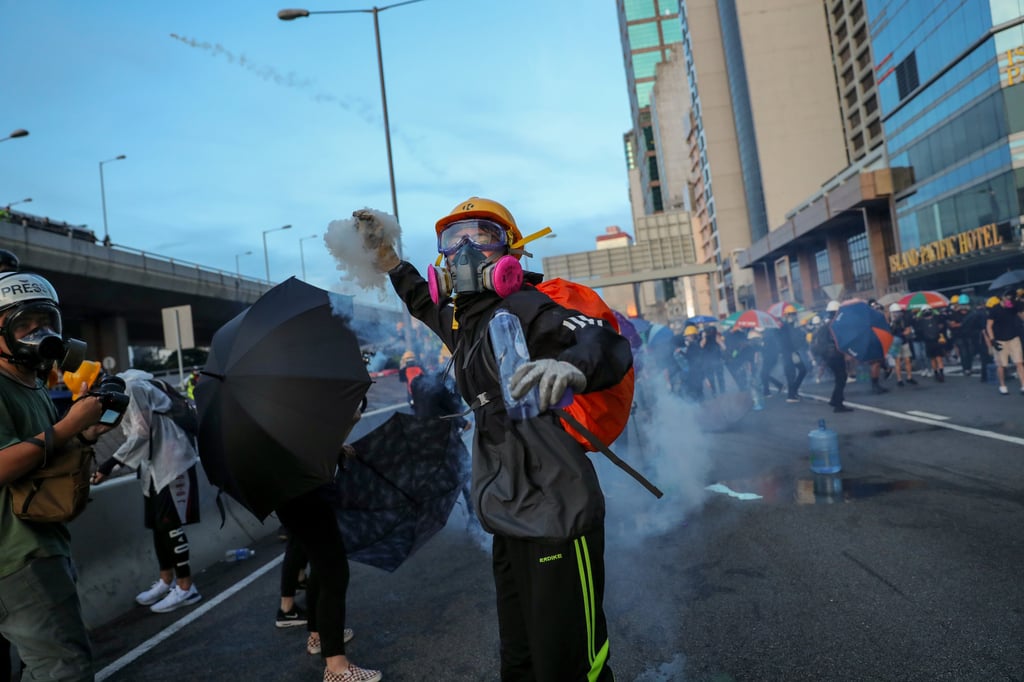Hong Kong jury told to weigh evidence from bomb plot leader despite his misuse of funds
Seven defendants have been charged under United Nations (Anti-Terrorism Measures) Ordinance, invoked for the first time since its enactment in 2002.
The trial is approaching the final stages with the prosecution and defence making their closing submissions.
They have denied their involvement in connection with the plot to plant two bombs in Wan Chai on December 8, 2019.
Wong, brigade leader turned prosecution witness, earlier testified against his alleged teammates and accomplice Cheung Chun-fu, Cheung Ming-yu, Yim Man-him, Christian Lee Ka-tin and Lau Pui-ying.
Other evidence had alleged the two defendants Lai Chun-pong and Justin Hui Cham-wing belonged to the plot mastermind Ng Chi-hung’s team.
Wong and Ng had both pleaded guilty.
During the trial, the defence lawyers tried to attack Wong’s credibility by pointing out financial records that showed he had spent about HK$300,000 (US$38,400) on football betting.
On the first day of giving closing statements, Chow said the prosecution would not contend that Wong had spent the money from crowdfunding to feed his gambling habit.
She asked the jury to put themselves in Wong’s shoes and imagined what led a young man to go overboard on gambling after receiving millions in his early twenties.
She also reminded the jury to put aside their personal views and stance on politics as well as the 2019 social movement.
In determining whether the defendants were guilty, the prosecutor asked the jury to consider whether the evidence had suggested “an agreement” was made to carry out illegal activities months before the December 8 plot.
The court previously heard evidence suggesting some defendants did not know each other at the material time and did not join the meetings where, according to Wong, involved a plan to use real guns and explosives to kill police.

But Chow said as long as a person understood his role in the plan and the goal of the plan, this would make him a conspirator who had entered into an agreement.
The jury was asked to look at a large amount of Telegram group chat records between the brigade members, as well as some private messages exchanged between Ng, Wong, and some defendants.
Those messages were used by the prosecution to support the aforementioned agreement and some defendants were aware of the plan.
The prosecutor highlighted the messages sent from Cheung Ming-yu to Wong and Ng, respectively, in which Cheung inquired about when a real gun would be shipped to the city and if he could use a combat knife.
She said Cheung was the only person among the brigade members who had directly contacted Ng after the two went to Taiwan for a military training along with others in that September.
But Cheung’s lawyer in the trial showed the court that his client had also texted Ng and said he would not escalate violence and kill police.
Prosecution will continue the submission on Wednesday.